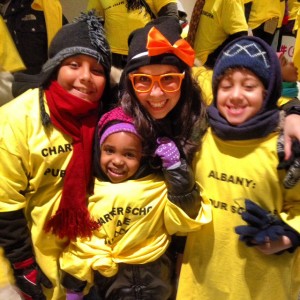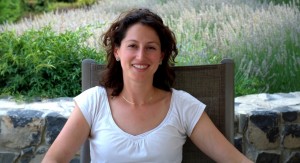This is the next in a series of posts by recipients of the Career Services Summer Funding grant. We’ve asked funding recipients to reflect on their summer experiences and talk about the industries in which they’ve been spending the summer. You can read the entire series here.
This blog is by Heena Khoja, WH ’15.
Whenever we have to complete an activity that we perceive as a chore or an obligation, we find ourselves checking the time to see when we’ll be done. In high school, I was fortunate enough to find a passion that didn’t have me running to the clock every few minutes through community service. I developed a strong volunteering relationship with a local hospice network and a youth empowerment/diversity education organization, which introduced me to some of the most inspiring individuals and sparked my interest in the social sector. Coming to Penn, I thought I wanted to run my own nonprofit in the future – which I may still like to do one day – but in the last few years, I’ve found myself drawn to opportunities where I can work with multiple nonprofits to help them with long-term planning and problem solving.
With that interest in mind, I pursued a summer fellowship with the nonprofit New Sector Alliance in Boston. New Sector’s mission is to strengthen the social sector by enriching its talent pipeline. In other words, New Sector cultivates young professionals to become effective nonprofit leaders. The summer program has four major components: capacity-building project for a host site nonprofit, trainings via the Social Impact Leadership Curriculum, one-on-one mentorship from skilled professionals, and learning teams facilitated by grad students. Given such a multifaceted opportunity, the experience is completely defined by what you make of it. The host site project, training workshops, and mentorship were the most meaningful aspects of my summer internship.
After being accepted into the New Sector cohort, summer fellows participate in matching interviews with several local nonprofits to establish a placement site. Initially, I was hoping to work with a larger organization on a quantitative project since the majority of my prior experience entails qualitative projects for small nonprofits. However, being placed at Tech Goes Home – a three-employee nonprofit that successfully equips thousands of Bostonians with the tools and resources for 21st century skill development – showed me how much I value a strong culture regardless of the size of the organization. My overall objective was to improve the quality and efficiency of Tech Goes Home’s technology literacy trainings. Although I tend to work better with structure, this broad project offered me the opportunity to learn how to manage ambiguity and set my own deadlines. At the end of the fellowship, I provided Tech Goes Home with detailed online learning content and a compiled list of best practices for its trainings. Over the new few months, I hope to keep in touch with my former teammates to learn whether my work was helpful and how it is being implemented.
My mentor and the New Sector training curriculum were also invaluable for personal and professional development. Every time I met with my mentor, he not only advised me on the direction of my project but also provided feedback on my work and general career support. The trainings delivered another holistic professional experience by covering topics like resumes and networking as well as social sector themes like fundraising and nonprofit finance. This industry-specific knowledge will be extremely useful for any type of nonprofit position that I may pursue. Beyond the fellowship, the city of Boston played a huge role in my summer experience and I’m so grateful to have had the opportunity to explore it for the first time. Based on just eleven weeks, I really hope to end up there after graduating from Penn.
My summer fellowship allowed me to understand the responsibilities of nonprofit consulting, which I intend to pursue in the long-term. After working with a number of diverse nonprofits in various capacities, I think I would enjoy the ability to learn about different social issues and work with such organizations from a strategic perspective in order to maximize their community impact. I’m also interested in other career paths that can benefit society on a larger scale, such as corporate social responsibility or impact investing. I believe the work experience I gained this summer, in addition to the New Sector community, will be fundamental to shaping my future in social impact. Thanks to Career Services for helping me fund the best summer of college by far!



 During the weeks since Carmen joined us, we’ve come into contact with a variety of individuals who have chosen careers working with animals and I’ve noticed how much they all seem excited and engaged by their work. The workers and volunteers at the shelter from which we adopted Carmen were incredibly upbeat and thrilled to welcome prospective adopters to their shelter. The atmosphere was a little crazy, as it was rather crowded with prospective adoptive families and volunteers along with (as you might imagine) lots of barking dogs. Even in the hectic environment, the staff took plenty of time to answer our questions to ensure that the transition went as smoothly as possible for Carmen and our family. The staff followed up a week or so later to make sure everything was going fine. I mentioned to one staff member how impressed I was with the entire upbeat environment, and she smiled broadly and said “Yes, we love our animals!” Clearly she had found her passion.
During the weeks since Carmen joined us, we’ve come into contact with a variety of individuals who have chosen careers working with animals and I’ve noticed how much they all seem excited and engaged by their work. The workers and volunteers at the shelter from which we adopted Carmen were incredibly upbeat and thrilled to welcome prospective adopters to their shelter. The atmosphere was a little crazy, as it was rather crowded with prospective adoptive families and volunteers along with (as you might imagine) lots of barking dogs. Even in the hectic environment, the staff took plenty of time to answer our questions to ensure that the transition went as smoothly as possible for Carmen and our family. The staff followed up a week or so later to make sure everything was going fine. I mentioned to one staff member how impressed I was with the entire upbeat environment, and she smiled broadly and said “Yes, we love our animals!” Clearly she had found her passion.
